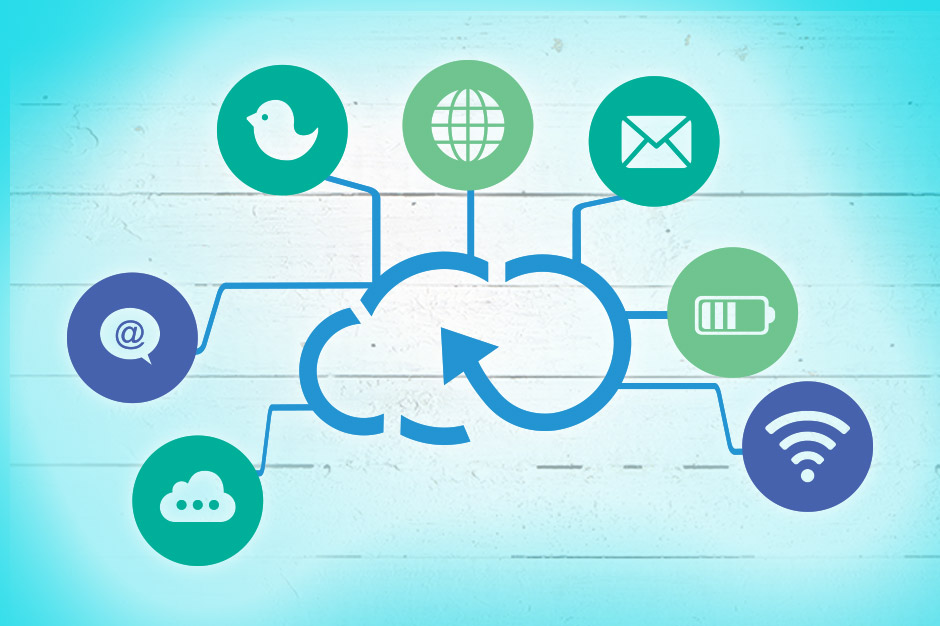For years, you’ve heard the term “the cloud.” Some people trust it. But many don’t. Small- and mid-size business owners are often skeptical of the cloud. Those who leverage the cloud understand its power and advantages — many to the point of having a cloud marketing strategy.
Cloud computing simply means using a network of computers (aka “server farms”) to store and process information rather than a single machine — making this information available on-demand from any device. It doesn’t mean that there are computers hovering in the atmosphere magically grabbing our data.
The benefits of cloud computing are numerous, and most don’t realize that a majority of the technology we enjoy today is actually “on the cloud.” If you use a mobile app, it’s hosted on the cloud. It very likely takes advantage of the big data processing the cloud offers. If your child has a Chromebook for school, it’s essentially only a dumb terminal that interacts with the cloud. Google docs, apps and similar software services are entirely hosted on the cloud. Have you used Dropbox, Netflix or Facebook? All on the cloud. Perhaps it's time for you to consider the cloud in your marketing strategy. Or are you a skeptic?
The skeptics typically point to a few very common concerns: security and access. Let’s address these individually.
Security
Security is everyone’s concern. Cyber breaches are common. These security breaches however are not a result of the cloud. In fact, the security layers of reputable cloud systems are immensely better than what a small- or mid-size business owner could ever hope to deploy.
Cloud infrastructures invest billions of dollars to ensure the highest level of security protocols. Most are PCI (Payment Card Industry) compliant, meaning they meet or exceed one of the highest levels of security measures.
PCI compliance and similar security certifications require physical security as much as data security. This means someone can’t walk into a data center and take your server. In fact, because of how the cloud stores data, your information is likely on several servers — in different physical locations! And each location requires multiple-level security clearance such as retinal scanning.
Analysts suggest up to 75 percent of the business data breaches are “inside jobs.” Remember the Target credit card hack? Inside job. The Pentagon? Inside job. Edward Snowden? Insider. When your data is stored locally, there is typically nothing to keep a disgruntled employee from walking out with his computer. Or worse, taking and destroying one or more of your servers. When your data is on the cloud, it’s far more difficult to breach data because the data is not physically present at your business.
Of course, physical separation of data often raises the next topic: the desire to have access to your business data at a moment’s notice.
Access
In discussions with business folks, the most common concern isn’t security as much as it is access. There is a misnomer that if the World Wide Web “goes down,” somehow having the data sitting in the basement is the best option.
If your Internet service goes down though, it’s going to be rather difficult to use your local data. Most of your data is now served up through a browser or software that requires an Internet connection. If your machines are offline, you can’t access any data … locally or otherwise. Having an Internet outage is about as serious as an electric outage. These things happen very infrequently, but they do happen.
But here’s the great thing about access, if you have your data on the cloud.
While your local server will be “offline,” the data on the cloud will still be accessible at the closest location that will allow Internet service. We have had local outages at our agency and simply by working from home, our smartphones or the local Starbucks, we were up and functioning. If our data had been locally stored, that data would have remained unavailable.
Secondly, redundancy on the cloud is much easier to attain. When Amazon’s Virginia region had some connectivity issues about four years ago, their solution was already in place: redundancy across the globe. Certainly there were some hiccups for users to access the data, but nothing that took more than an hour to process. The actual intermittent outages probably only totaled 90 seconds. All operations by Amazon Web Services were back to normal within 24 hours.
Every measure of security and access is greater on the cloud than what could ever be achieved by hosting data locally.
A Bonus reason to get on the cloud Today
The cloud costs far less than traditional data hosting — as little as a fraction of a cent per hour versus spending thousands for physical servers that are often out-of-date before they are even installed.
In the digital age, customers expect 24/7/365 access. That expectation alone is a reason to have a cloud marketing strategy — to communicate that you offer reliability, redundancy, security and round-the-clock access. As we transition to becoming integrated, digital businesses, cloud computing really is the best option.
It’s time to trust the cloud.



